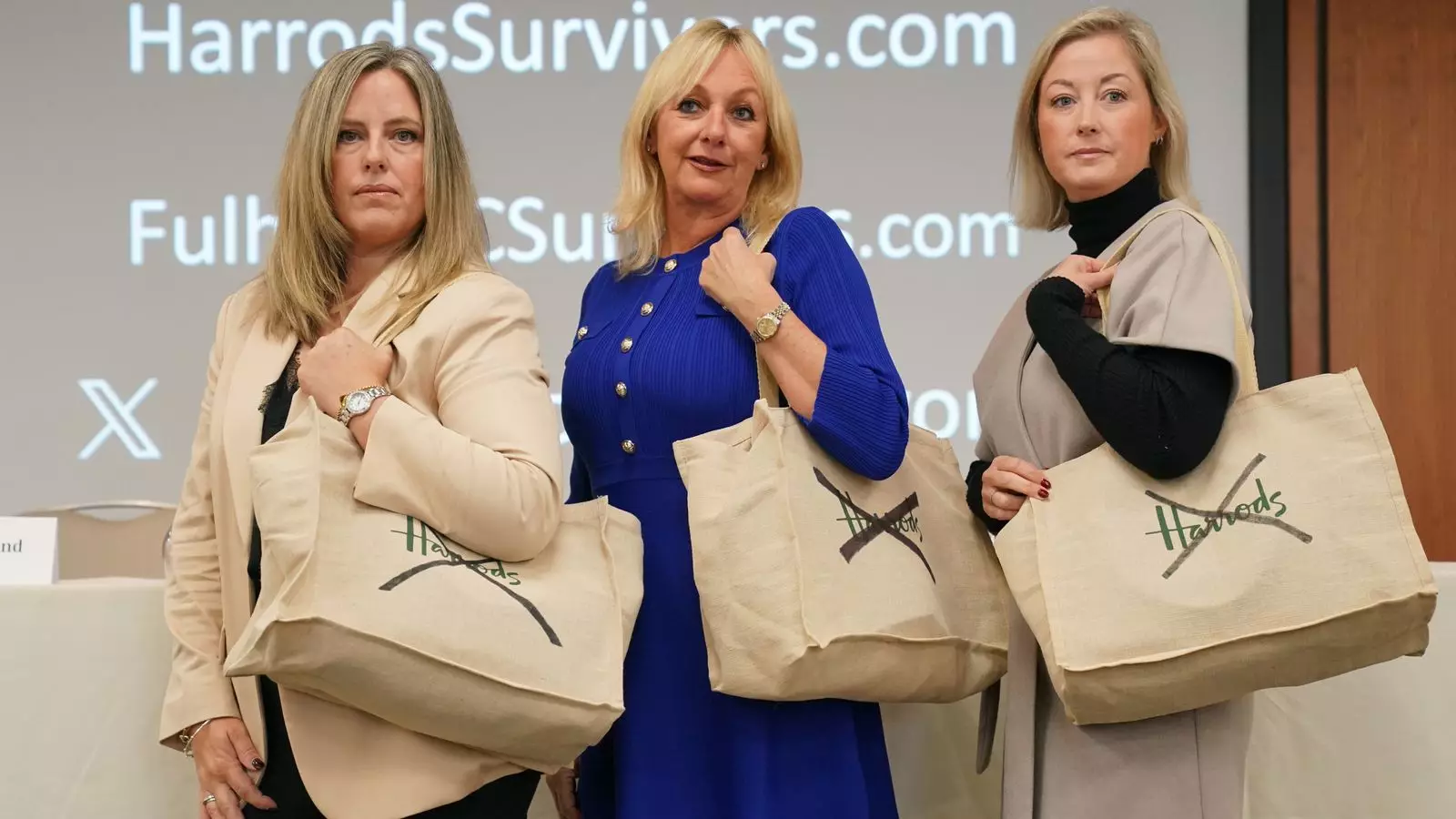In recent weeks, a wave of accusations has emerged against the late Egyptian businessman Mohamed al Fayed, once a prominent figure in the UK due to his ownership of Harrods and Fulham Football Club. Represented by the Justice for Harrods Survivors group, over 400 individuals have come forward, claiming to be victims or witnesses of alleged sexual abuse connected to Fayed. This unprecedented surge of testimonies raises serious questions about the culture of silence that may have allowed such abuse to persist for decades.
The group’s spokesperson, Dean Armstrong KC, alongside colleagues Bruce Drummond and Maria Mulla, held a press conference in London to discuss the troubling claims. Significantly more than mere isolated incidents, the allegations encompass a spectrum of heinous acts including serial rape, sexual assault, and abuse of minors. Such serious accusations derive not only from former employees at Harrods and Fulham FC but also from various other locations affiliated with Fayed, hinting at a broader pattern of misconduct.
The sheer volume of testimonies being processed indicates systemic issues that transcend individual perpetrators. Armstrong mentioned that they are currently handling inquiries from 421 individuals, a figure that hints at an extensive web of abuse potentially encompassing several jurisdictions, including the UK, US, Canada, Asia, and Australia. Drummond aptly termed the scenario as an “industrial scale of abuse,” emphasizing a troubling system that allowed such exploitation to thrive.
This affirmation of a systemic problem points to a troubling reality where corporate structures may have inadvertently nurtured an environment conducive to abuse. The credibility of the evidence being compiled raises alarm about the safeguards in place at prominent institutions involved with Fayed and casts a long shadow over the reputations of these organizations.
In a decisive move, the survivors’ group has initiated the first formal claim against Harrods, marking the beginning of a potentially extensive legal battle. This claim is expected to be the first of hundreds, suggesting that the legal ramifications for the involved parties could be severe. The strategy behind initiating this claim is not merely to retain visibility on this issue but to ensure that the stories of those affected are taken seriously and addressed in a court of law.
Both the civil implications and the societal discourse surrounding such cases are of utmost importance. Although Harrods has publicly expressed shock and disbelief regarding these allegations, stating that it is “utterly appalled” by the claims, it’s crucial for organizations to engage from a position of accountability rather than defensiveness. The historical context—Fayed’s ownership of the department store stretching from 1985 to 2010—imperatively questions what mechanisms were in place during that period to protect vulnerable individuals from predatory behavior.
Among the many voices connected to this case, notable figures such as Bianca Gascoigne, daughter of football legend Paul Gascoigne, have disclosed their harrowing experiences. Bianca alleges that she was groomed and sexually assaulted by Fayed when she was employed at Harrods as a teenager, a chilling account that further complicates the narrative surrounding Fayed’s legacy. Moreover, former Fulham Women captain Ronnie Gibbons has also come forward with her claims of sexual assault, highlighting the pervasive nature of the alleged abuse.
These testimonies not only signify individual suffering but serve as critical components in the broader dialogue about how society addresses and rectifies issues of abuse, particularly within powerful institutions. The fact that 21 women filed sex crime allegations against Fayed with the Metropolitan Police between 2005 and 2023 accentuates a persistent plight that deserves rigorous examination.
As the legal proceedings potentially unfold and more former victims decide to come forward, the implications of the allegations against Mohamed al Fayed stretch far beyond individual accountability. Societal patterns of enabling and failing to confront abuse come to the forefront, demanding critical reflections on the processes, policies, and ethical considerations entrenched within corporate frameworks. The need for systemic change is underscored as society grapples with the fallout of such damning allegations, urging organizations to support victims rather than unwittingly contribute to environments where abuse can fester unchecked.
This series of allegations serves as a stark reminder of the responsibility both individuals and institutions bear in upholding ethical standards and protecting the vulnerable in society. Only through comprehensive accountability and reform can we hope to begin addressing such a disturbing manifestation of power dynamics and abuse.



Leave a Reply